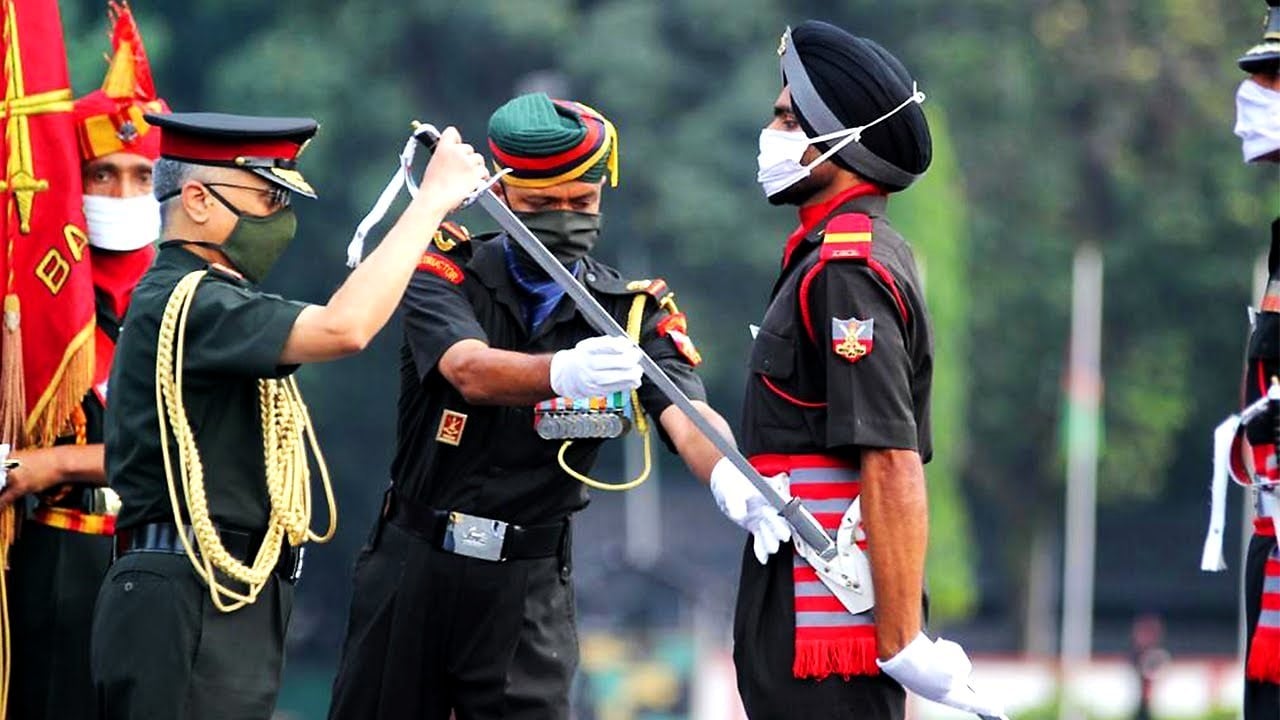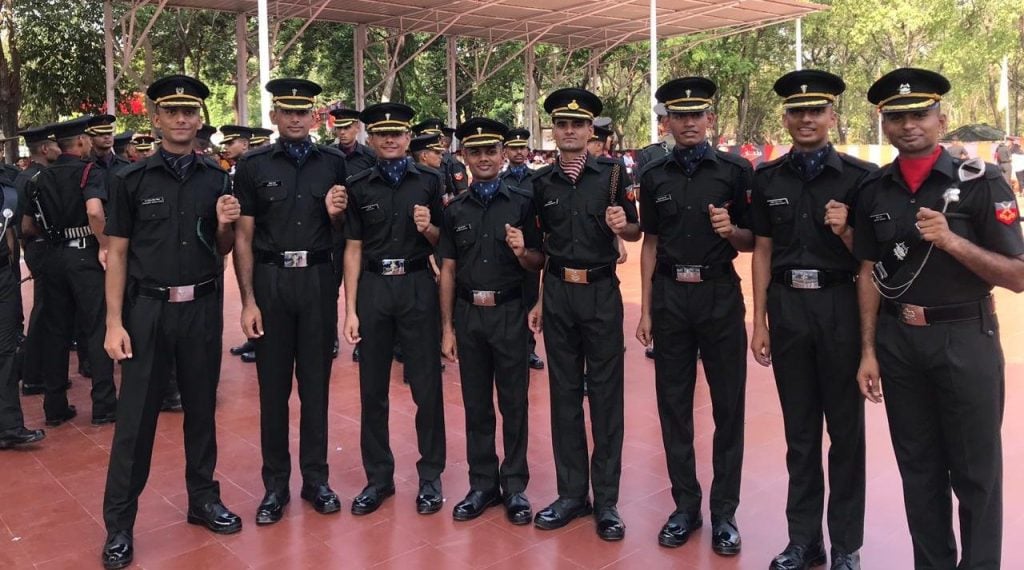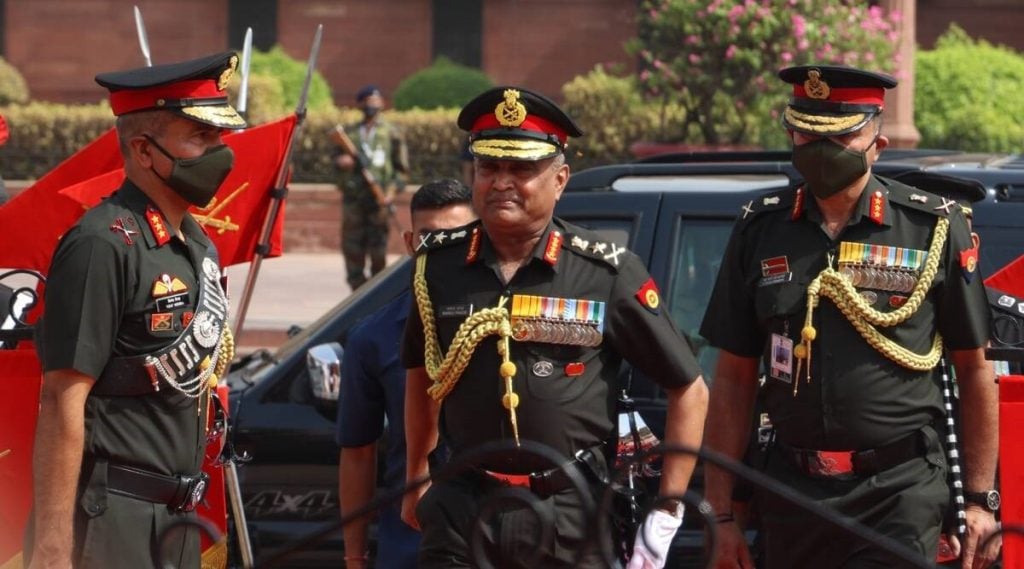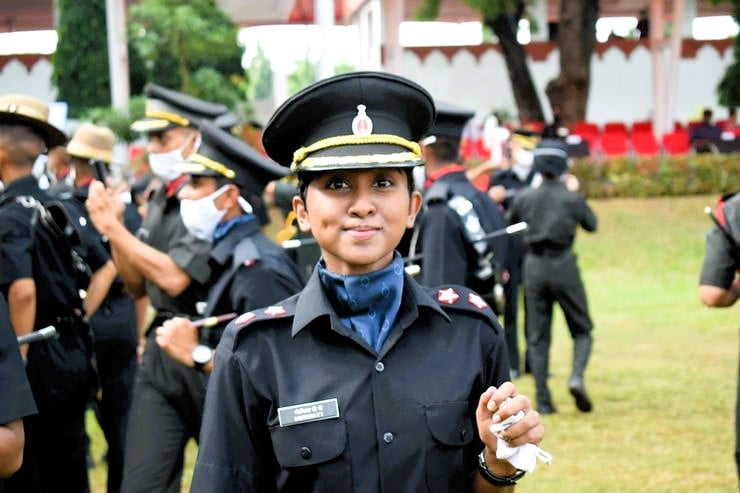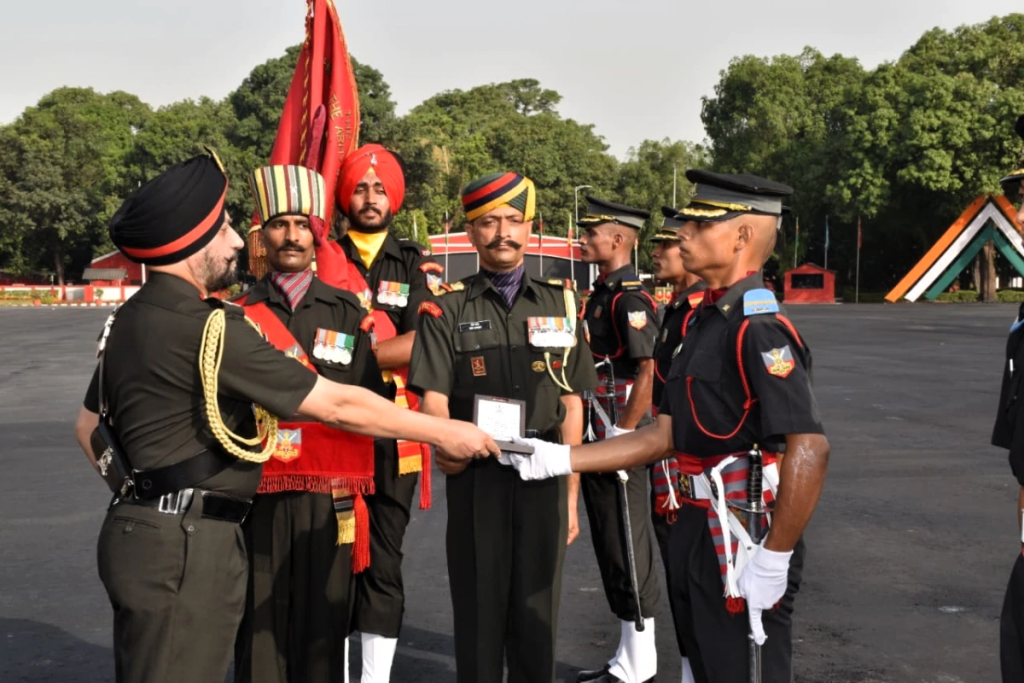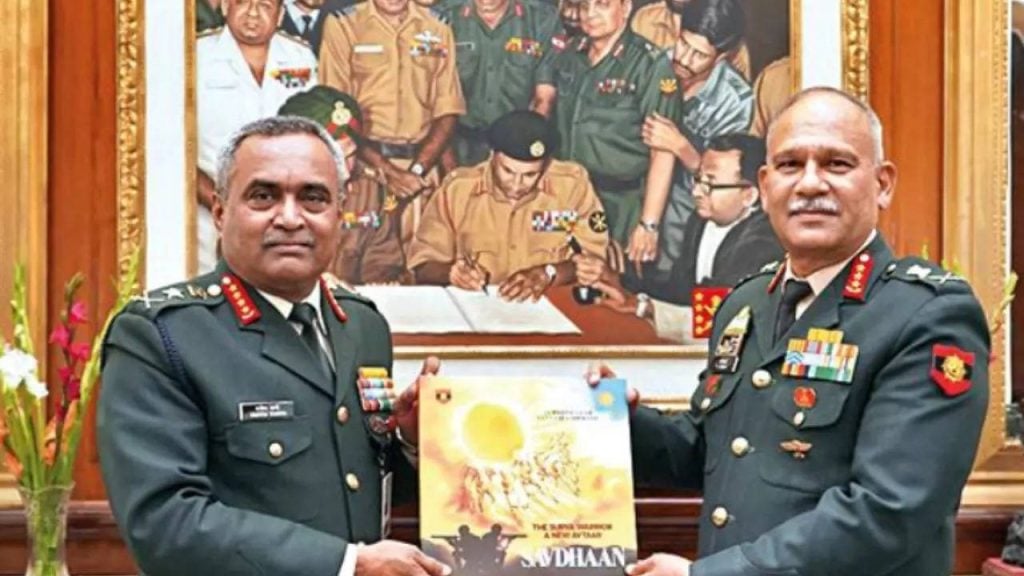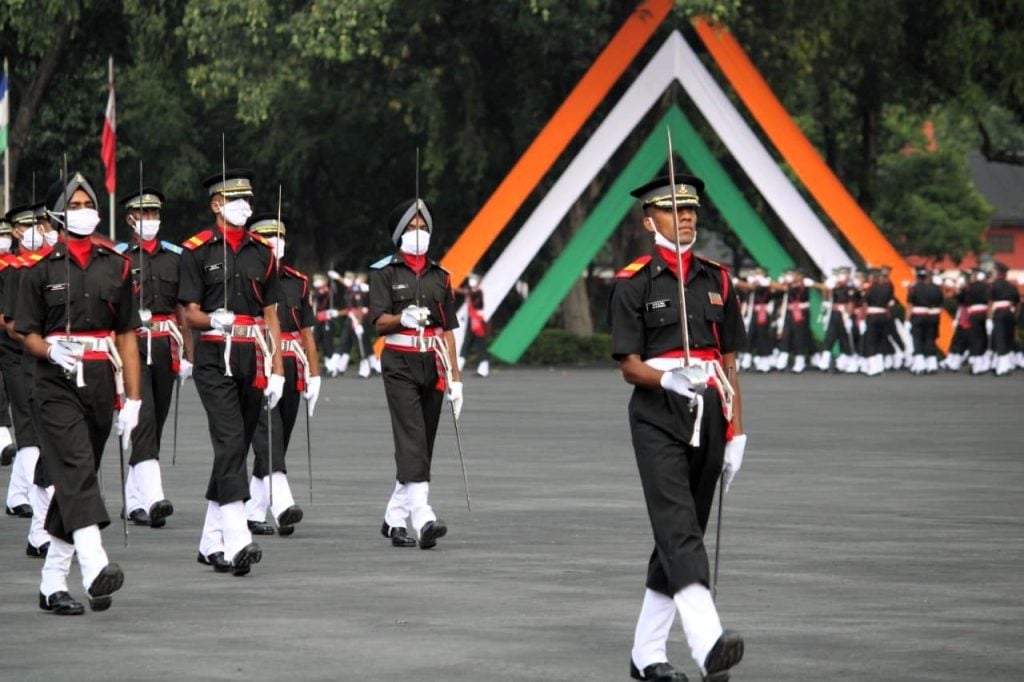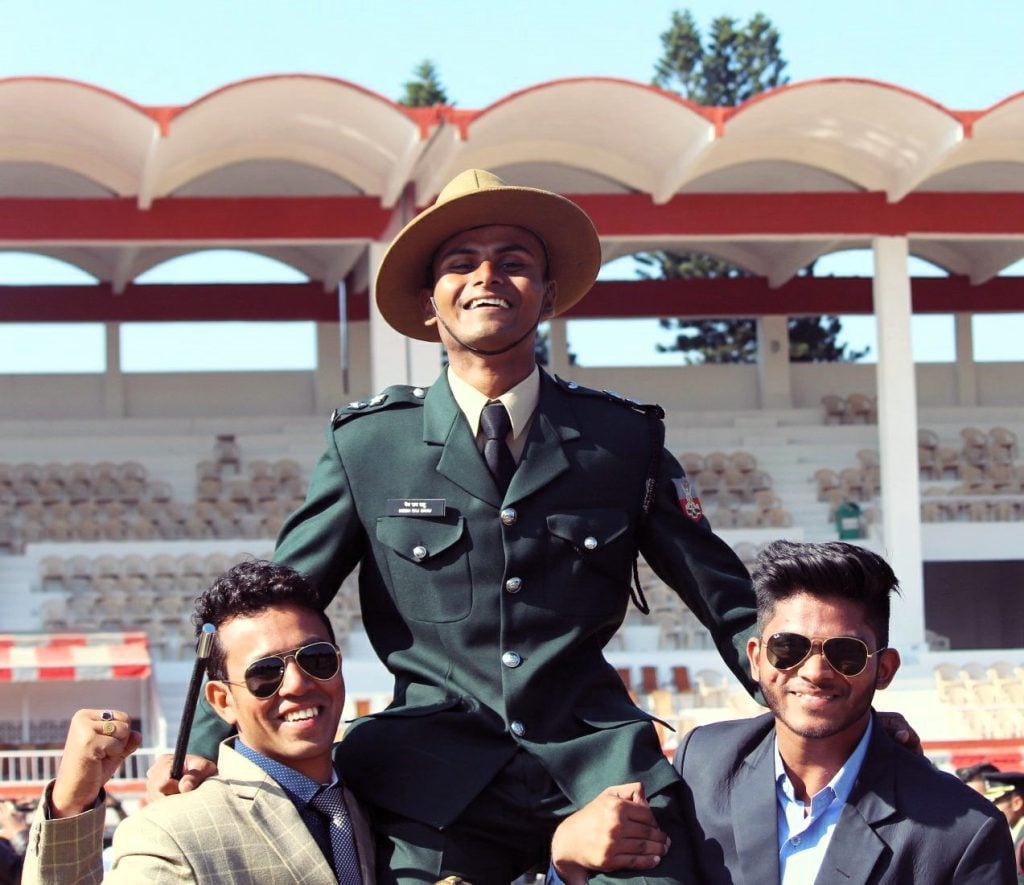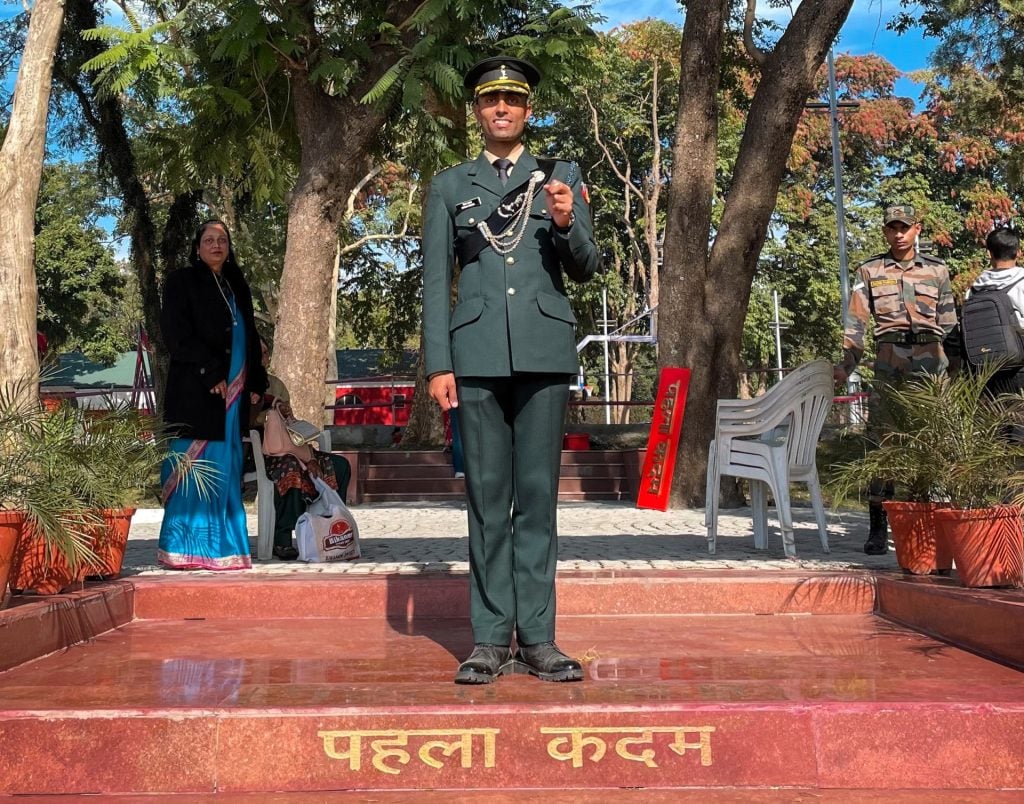Joining the armed forces is a noble and esteemed pursuit, one that demands a unique set of qualities from those who seek to don the uniform. Whether your ambition lies in the army, navy, or air force, the life of a soldier, or “fauji” as they are commonly known, is filled with immense challenges, unwavering dedication, and a profound sense of pride. To thrive in this revered profession, aspiring faujis must cultivate a specific constellation of personality traits that set them apart from the rest.
In this comprehensive guide, we delve into Developing the Right Traits for an Army Career. By understanding and honing these traits, you can position yourself for a successful and fulfilling career in the defense services. From the unwavering discipline that forms the backbone of military life to the courageous spirit that propels faujis into the face of danger, we will explore the multifaceted nature of the fauji’s character. Prepare to embark on a transformative journey as we uncover the keys to becoming a true guardian of your nation.
The Cornerstone of Military Life
At the very heart of the fauji’s existence lies an uncompromising commitment to discipline. This unwavering adherence to rules, regulations, and routines shapes the character of every soldier, instilling a sense of focus, organization, and unwavering dedication to their duties.
The Bedrock of Efficiency
Discipline is the foundation upon which the military’s operational efficiency is built. It ensures that faujis remain steadfast in the face of adversity, making informed decisions even in the most high-pressure situations. This disciplined approach enables military units to function seamlessly, with each individual contributing to the larger mission with unwavering commitment.
Cultivating Discipline
Discipline is not an innate trait; it is a habit that can be developed through consistent effort and practice. Embracing a structured routine, setting clear goals, and holding oneself accountable are some of the key strategies for cultivating discipline. Additionally, learning from experienced faujis and imbuing their values and work ethic can significantly contribute to the development of this essential quality.
Physical Fitness
Physical fitness is a non-negotiable prerequisite for anyone aspiring to join the defense services. Faujis undergo rigorous training regimens to build strength, endurance, and agility, as their physical capabilities are crucial for combat readiness and overall well-being.
The Benefits of Physical Fitness
Being physically fit allows faujis to perform their duties effectively and adapt to challenging environments. It enhances their mental resilience, boosts confidence, and reduces the risk of injuries. Moreover, physical fitness fosters camaraderie and teamwork, as faujis train together to overcome physical obstacles.
Achieving and Maintaining Physical Fitness
To achieve and maintain physical fitness, faujis engage in a variety of activities, including running, strength training, and endurance exercises. Regular participation in sports, such as football, basketball, or swimming, also helps faujis develop their physical capabilities. Following a balanced diet, getting sufficient rest, and avoiding harmful substances are equally important for maintaining peak physical condition.
Top Tips for Managing School and NDA Preparation Together
Mental Resilience
The life of a fauji is often marked by immense challenges, both physical and mental. Mental resilience, the ability to endure and bounce back from setbacks, adversity, and stress, is a crucial trait that enables faujis to remain focused, composed, and effective in the face of adversity.
Cultivating Mental Resilience
Developing mental resilience requires a multifaceted approach. Cultivating a positive mindset, maintaining emotional stability, and seeking support from peers and mentors are essential. Additionally, practicing mindfulness, setting realistic goals, and learning from past experiences can significantly strengthen mental resilience.
The Importance of Mental Resilience
In the military, faujis encounter situations that test their mental fortitude, such as extended deployments, separation from loved ones, and exposure to life-threatening situations. Mental resilience enables them to cope with these challenges and perform their duties with unwavering determination. It also helps faujis support their colleagues and provide emotional stability to those around them.
Leadership
Leadership is a fundamental aspect of military life, as faujis are expected to lead and inspire their subordinates to achieve common goals. Effective leadership involves setting a positive example, making informed decisions, and fostering a culture of trust and respect within the unit.
Diverse Leadership Styles
Leadership styles may vary among faujis, but they all share the common objective of achieving mission success while prioritizing the welfare of their team members. Some leaders adopt an authoritarian style, providing clear and direct instructions, while others prefer a more participative approach, involving subordinates in decision-making processes. Regardless of the style, effective leaders recognize the importance of empowering their team and creating an environment where everyone’s contributions are valued.
Developing Leadership Skills
Leadership skills can be honed through experience, training, and self-reflection. Taking on responsibilities, seeking mentorship, and actively seeking feedback are valuable ways to develop leadership abilities. Participating in leadership courses and learning from successful leaders can provide valuable insights and guidance, equipping faujis with the tools they need to inspire and guide their teams.
Teamwork
Teamwork is a cornerstone of military operations, as faujis work collaboratively to leverage each other’s strengths and skills to achieve common objectives. The success of any mission depends on the cohesion, coordination, and synergy of the team.
The Power of Collective Effort
Teamwork enables faujis to combine their individual capabilities, knowledge, and experiences to accomplish complex tasks. It fosters camaraderie, trust, and mutual support, creating a harmonious and efficient working environment. Moreover, teamwork enhances problem-solving abilities as faujis pool their diverse perspectives and expertise to find effective solutions.
Building Teamwork Skills
Developing effective teamwork skills requires strong communication, active listening, and respect for diverse opinions. Faujis can enhance their teamwork abilities by participating in team-building exercises, engaging in group discussions, and learning to collaborate with individuals from different backgrounds. Cultivating empathy and understanding the strengths and weaknesses of team members are also critical aspects of building cohesive and high-performing teams.
Integrity
Integrity is a core value that lies at the heart of military service. Faujis are expected to uphold the highest moral and ethical standards, both on and off duty. Integrity encompasses honesty, trustworthiness, and a strong sense of personal and professional ethics.
The Importance of Integrity
Integrity ensures that faujis act with honor and maintain the trust of their colleagues, superiors, and the public. It forms the foundation of a fauji’s character and reputation. Upholding integrity is crucial not only for personal growth but also for maintaining the credibility and effectiveness of the defense services.
Demonstrating Integrity
Demonstrating integrity involves being truthful, adhering to ethical principles, and taking responsibility for one’s actions. Faujis are expected to act with fairness, transparency, and impartiality in all their interactions. Upholding the values and traditions of the military and displaying unwavering loyalty to the nation are also manifestations of integrity.
Adaptability
The military operates in ever-changing and dynamic environments, requiring faujis to be adaptable and flexible to handle unexpected situations, shifting priorities, and evolving strategies effectively. Adaptability involves embracing change, demonstrating resilience, and quickly adjusting to new circumstances.
The Benefits of Adaptability
Adaptability enables faujis to respond effectively to unpredictable situations and overcome obstacles. It fosters innovation, creativity, and a willingness to learn and grow. Additionally, adaptability allows faujis to connect with individuals from diverse backgrounds and cultures, promoting inclusivity and global understanding.
Cultivating Adaptability
Cultivating adaptability involves developing a growth mindset, embracing new challenges, and seeking opportunities for personal and professional development. Faujis can enhance their adaptability by staying informed about evolving technologies, geopolitical situations, and military strategies. Seeking feedback, learning from failures, and maintaining a positive attitude are also critical aspects of building adaptability.
Patriotism
Patriotism is a defining characteristic of faujis, as they are motivated by a deep sense of duty and a desire to protect and serve their motherland. This intense love, loyalty, and devotion to one’s country fuels their commitment to their duties, even in the face of adversity.
The Significance of Patriotism
Patriotism instills a sense of purpose, pride, and responsibility in the service of faujis. It drives them to make sacrifices and go above and beyond to safeguard the nation’s interests, serving as a unifying force that binds them together in their collective mission.
Expressing Patriotism
Faujis express their patriotism by actively participating in national events, upholding the values and heritage of their country, and inspiring fellow citizens to embrace a spirit of nationalism and contribute to the nation’s progress. They often serve as role models, embodying the ideals of service, sacrifice, and unwavering dedication to the motherland.
India’s Elite: 8 Special Forces Units That Define Power
Selflessness
Selflessness is a defining characteristic of faujis, as they prioritize the needs and welfare of their comrades and the nation above their personal interests. Faujis are willing to make sacrifices and are driven by a sense of duty and service.
The Benefits of Selflessness
Selflessness fosters a sense of unity, camaraderie, and mutual support within military units. It enables faujis to work towards common goals and serve the greater good. Moreover, selflessness strengthens the bond between faujis and instills a spirit of self-sacrifice and dedication, which are essential for the success of any military operation.
Practicing Selflessness
Practicing selflessness involves prioritizing the welfare of others, volunteering for challenging assignments, and supporting colleagues in their professional and personal growth. Faujis demonstrate selflessness by displaying empathy, compassion, and a willingness to go beyond the call of duty to help those in need.
Courage
Courage is an inherent trait of every fauji, as they are often confronted with high-risk situations that test their mettle. Courage is the ability to overcome fear and act bravely in the face of danger, enabling faujis to fulfill their duties with valor and determination.
The Multifaceted Nature of Courage
Courage can manifest in different forms. Physical courage involves facing physical threats and risks head-on. Moral courage entails standing up for what is right, even in challenging circumstances. Emotional courage involves managing emotions effectively to make difficult decisions. Faujis must display all three types of courage in their service.
Building Courage
Building courage requires mental, emotional, and physical preparation. Faujis undergo specialized training to develop the physical and mental resilience needed to face challenging situations. Building self-confidence, embracing fear as a catalyst for growth, and cultivating a strong support system are also critical aspects of building courage.
Effective Intelligence
While the armed forces require a certain level of intellectual capacity, the primary focus for faujis is on practical problem-solving and decision-making. Effective intelligence, which encompasses spontaneity, adaptability, and the ability to follow orders, is a crucial trait for army officers.
Practical Approach to Challenges
Faujis are often faced with complex, real-world challenges that require immediate action and practical solutions. Their effective intelligence allows them to assess situations quickly, make informed decisions, and execute their duties with precision, even in the most high-pressure environments.
Developing Effective Intelligence
Cultivating effective intelligence involves honing one’s decision-making abilities, fostering a practical mindset, and embracing a willingness to take reasonable risks. Faujis can enhance their effective intelligence through hands-on training, exposure to diverse scenarios, and learning from experienced mentors who have navigated similar challenges.
Reasonability
In the military, where orders and protocols are paramount, it is equally important for faujis to possess a sense of reasonability. This trait enables them to ask questions, understand the rationale behind their duties, and make informed decisions that align with the overall mission.
The Value of Questioning
Reasonability encourages faujis to engage in critical thinking, challenging assumptions and seeking clarity when necessary. This questioning mindset allows them to better comprehend the context and significance of their tasks, fostering a deeper commitment to their responsibilities.
Cultivating Reasonability
Developing reasonability involves fostering a curious and inquisitive nature, while also maintaining respect for the chain of command. Faujis can enhance their reasonability by actively seeking explanations, engaging in thoughtful discussions with superiors, and continuously learning about the broader strategic objectives of the military.
Organizing Capabilities
The ability to organize and utilize resources effectively is a hallmark of exceptional army officers. Faujis must possess strong organizational skills to ensure the efficient deployment of personnel, equipment, and logistics, enabling their units to achieve their objectives with maximum effectiveness.
The Art of Coordination
Organizational skills allow faujis to coordinate the various moving parts of a military operation, ensuring that each component works in harmony to support the overall mission. This includes the ability to delegate tasks, manage timelines, and allocate resources in a strategic manner.
Developing Organizational Competence
Honing organizational capabilities involves a combination of training, experience, and continuous learning. Faujis can enhance their skills by participating in planning exercises, studying military logistics, and seeking mentorship from seasoned officers who have mastered the art of resource management.
Power of Expression
In the military, where orders and instructions can mean the difference between life and death, the power of expression is a vital trait for army officers. Faujis must possess the ability to communicate clearly, concisely, and with conviction, enabling them to mobilize their troops and inspire them to achieve greatness.
The Art of Effective Communication
Effective communication is the cornerstone of successful military leadership. Faujis must be able to convey their vision, directives, and expectations in a manner that is easily understood and executed by their subordinates. This requires a combination of verbal and non-verbal communication skills, as well as the ability to adapt one’s style to different situations and audiences.
Developing Communication Prowess
Enhancing one’s power of expression involves continuous practice, feedback, and self-reflection. Faujis can hone their communication skills through public speaking exercises, written communication exercises, and active listening practice. Seeking feedback from peers and superiors, and learning from effective communicators within the military, can also help faujis refine their expression capabilities.
Essential Tips to Sharpen Your General Knowledge for Military Exams
Conclusion
Becoming a fauji is a transformative journey that demands the cultivation of a unique set of personality traits. From the unwavering discipline that forms the backbone of military life to the courageous spirit that propels faujis into the face of danger, these essential qualities define the character of exceptional army officers.
By understanding and developing these traits, aspiring faujis can position themselves for a successful and fulfilling career in the defense services. Whether it’s mastering the art of teamwork, embracing the spirit of selflessness, or cultivating the power of effective communication, each of these qualities plays a vital role in shaping the fauji’s journey.
Embark on this noble path with a steadfast commitment to self-improvement and a deep-rooted passion for serving your nation. Embrace the challenges, learn from the experiences, and let these defining traits guide you towards a future where you can proudly stand alongside the esteemed ranks of the fauji.
FAQs
1. What is the personality of an army officer?
Successful Army officers embody a unique blend of leadership, resilience, and adaptability. They demonstrate steadfast dedication to their responsibilities, lead by example, and motivate their teams to reach exceptional heights.
2. What qualities make a good military officer?
The traits, in ranked order, included: leadership, teamwork, open-mindedness, integrity, persistence, bravery, curiosity, love of learning, social intelligence, fairness, perspective, creativity, and self-regulation.
3. What are the attitudes of Army officers?
Courage is a fundamental trait in military officers. They must be prepared to face danger to safeguard their country and fellow soldiers. Alongside physical bravery, moral courage is just as crucial. Officers are expected to maintain the highest ethical standards, even when confronted with challenging decisions or moral dilemmas.
4. What are the traits of Indian Army?
The four key qualities of an Indian soldier – patriotism, loyalty, humanity, and courage are the cornerstones of the military personnel.
5. What is the attitude of a good soldier?5.
They are trained to hold their ground and never back down in the face of challenges. They know that the cause they fight for is bigger than themselves. Their resolve, motivation, and commitment remain steadfast. They are prepared to sacrifice their lives for their beliefs.
